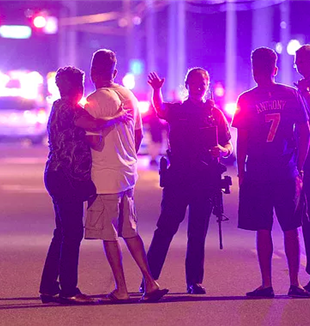
Judgement on Orlando
In the end, when we were all relaxing with our glasses of wine and sitting under the trees, a former partner of my sister—a woman who I respect very much—said: “I just got a passport."A few years ago, I was at a barbecue with my family in California. Toward the end, when we were all relaxing with our glasses of wine and sitting under the trees, a former partner of my sister—a woman who I respect very much—said: “I just got a passport. As a lesbian, I am okay here in California, but if society turns against us, I want to have a quick and easy way to get out.” Her ideas really struck me. The LGBT community has been victorious everywhere: with the phrase “celebrate diversity,” they have taken control of the choice of hiring staff in all schools, universities, and large companies; with the label “homophobe,” they have silenced anyone who would criticize them in the mass media; they have even made the whole society abandon the very meaning of marriage, etc. And yet, her perception of reality was one of profound insecurity, leading her to plan a possible escape from persecution.
It made me think of the Christian minority in Palestine that, despite many signs of solidarity on the part of the government, always feels insecure, thinking that society could turn against them at any moment (as we see in many Muslim countries at this time). This was one of the hardest things to communicate to the young Muslims whom I was preparing for Baptism. They could not understand how fragile the situation of the Christian community was, how a lack of prudence on the part of some Christians could result in big problems for the whole Christian minority. They thought, “But no! I have lived all my life as a Muslim in this society and there is no danger for the Christians!” Unfortunately, they have had to learn this lesson the hard way. But, as with my lesbian friend, it is truly difficult for someone who belongs to the majority to understand the sense of insecurity suffered by the minority.
All of this came to mind as I watched the reactions (and reactions to the reactions) to the horrendous massacre done in the name of the Islamic State at a gay night club in Florida. Everyone has strongly denounced this outrage. But on the part of so many Christian and conservative leaders, expressions of solidarity with the LGBT community as such have been lacking in their words of comfort. This lack was soon noted and condemned by so many progressives as a proof that Christians want gays dead. In fact, not a few commentators accused Christians of having created a hostile environment that encouraged the terrorist in his work as executioner.
They are wrong. But I should admit that my awareness of the difference between that which they seem to want for society and that which I want, and my experience of the power they wield, which I feel as hostile to my Christian identity, have made me hold something back from my empathy and compassion, not only for the individuals impacted directly by the event, but also from the community that considers itself to have the same identity. I have not wanted to give the community as such all my solidarity and willingness to suffer with them. But in this, I understand that I need to grow. It is not possible to love others if not by embracing them where they are, and not waiting until they are different. And in this case, it also means to feel with them their fear, insecurity, and sense of persecution even if I do not judge it as entirely real. I am asking God for the gift to suffer in a deep way for those who are different than me, in opposition to me. I pray for the ability to be with the LGBT community and to ask for the security that comes from being loved.